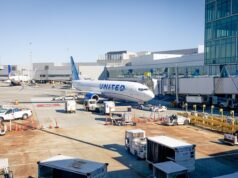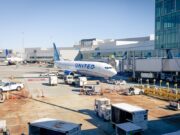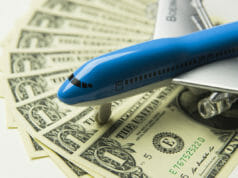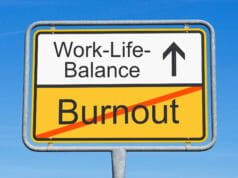Being on reserve is no pilots dream
job, but it is part of the process. Reserve rules vary widely from airline to airline and contract to contract. When deciding what airline to go to does one even consider looking at the reserve rules? I know I didn’t, but it could make a huge difference in your career, if you end up stuck on reserve for a long period of time. I’ve been involved in the airline industry long enough to know how rapidly things can change and one small event can put you back on reserve and really taking a look at that one section you really did not want to know anything about.
What does it mean to be on reserve? To be on reserve means that you are given a certain number of days off for the bid period, 10-14 depending on the contract, and the rest of the days you are assigned a reserve availability period or RAP. Each airline has their own set of requirements for reserve call out times for these RAPs. These call out times vary based on the minimum report time and the flight schedules at each domicile.
Typically reserves are broken down into two categories, short call and long call. Short call reserves are typically given a RAP, where long call reserves are on call 24 hours a day during the days that they are on reserve. For example, an airline may have the following call out times for a short call reserve; 3:00 AM, 8:00 AM and 12:00 PM. Typically, these call out times are not even in the contract. These times are more of an on demand from the airline and can be changed, as the airline sees fit. What they cannot change is the minimum report time, which I have seen as short as 60 minutes up two hours for short call reserves. Long call reserves typically must have the minimum FAA required rest prior to reporting for duty, which is now ten hours. I have read contracts with long call reserve report times varying from ten hours to 48 hours. A long call would start his RAP at 12:01 AM on his/her first reserve day, at this time crew scheduling can call the pilot and have them report to the airport, at minimum, ten hours later. The pilot receives their FAA Part 117 legal rest and may start a trip.
The order in which crew scheduling is required to call reserve pilots also varies greatly between contracts. Some contracts have little to no requirements where others have a lengthy section just on the order in which pilots are called for an assignment. Typically, call out is in reverse seniority order with all things equal. Meaning that if there are two pilots good for four days of reserve and a four-day trip becomes available, the junior pilot will be assigned the trip. If the senior pilot has two days remaining and the junior pilot has four days remaining, and a two-day trip becomes available, the senior pilot will be assigned the two-day trip. Other contracts give pilots the availability to select “Will-Fly” meaning they would prefer to fly verse no preference. The will-fly pilots are then selected in seniority order. Another factor you might see is first in/last out, which simply means if you just finished a trip they must go through the list before they call you again for an assignment. A similar system is based on current hours flown for the month, highest value gets called last.
Airport Ready Crew (ARC), hot reserve, ready reserve and airport or field standby all refer to the same thing, you get paid do to the thing you love to do, sit around the airport. This mean you need to be at the airport, bags packed and ready to go fly a trip. Most, if not all, contracts set a maximum amount of hours per day that crew scheduling is aloud to assign airport standby to the pilot. Some are as long as ten hours, while others are only four hours. Be cautious of what the airline pays for your time sitting around the airport, some only pay half of the time spent, while others pay for the entire time. To dig in deeper, some of the contracts have very clear and specific rules about airport standby, such as:
- If assigned a flight it must leave during your airport standby time even if it is delayed it is an illegal assignment,
- Maximum amount of times you may be assigned airport standby in one bid period,
- A pilot will not be assigned airport standby consecutive days in a row,
- A pilot will not be assigned airport standby on you last day of a block of reserve days,
- Release and report times of airport standby are based on actual flight schedules for that day,
- A pilot will not be assigned an overnight trip without given time to retrieve his/her overnight bags from their home,
- Only those awarded a ready reserve line will be assigned ready reserve.
- Pilots on ready reserve will either get a single occupancy hotel room near the airport or a designated room just for ready reserves at the airport. This room must have the following: TV, table, chairs, telephone, phone/modem line and a lazy boy chair for each pilot.
As you can see there are many variables how airport standby is dictated and assigned.
Once you are done with your trip or block of reserve days, how do you get released from reserve duty? Every contract has a different procedure. The most common is calling crew scheduling to be released from duty after your trip is done. You may still have more reserve days available but if all flying is covered for that day you may head on home. One contract allows you to simple check your schedule 15 minutes after you have landed and if there is nothing on your schedule, you are released. Another states that after calling crew scheduling they have four options, released from duty, placed on ready reserve, given another assignment or return to regular reserve status.
Other random reserve rules include:
- The pilot receives minimum pay per day whether s/he is called out or not,
- Limits are set on maximum scheduled phone availability and duty day,
- Whether or not crew scheduling can assign out of domicile reserve,
- What time the pilot is released on the last day of block of days if s/he is not assigned a trip, i.e. at one airline in particular, if nothing has been assigned on your last day of reserve by 6:00 PM you are automatically released from duty.
These rules will vary from airline to airline be sure to read your contract and make sure you know the limitations and advantages of each section.




























































































































